Microsoft and the duo user Part III: Windows 10 is for everything you do
Windows is Windows.
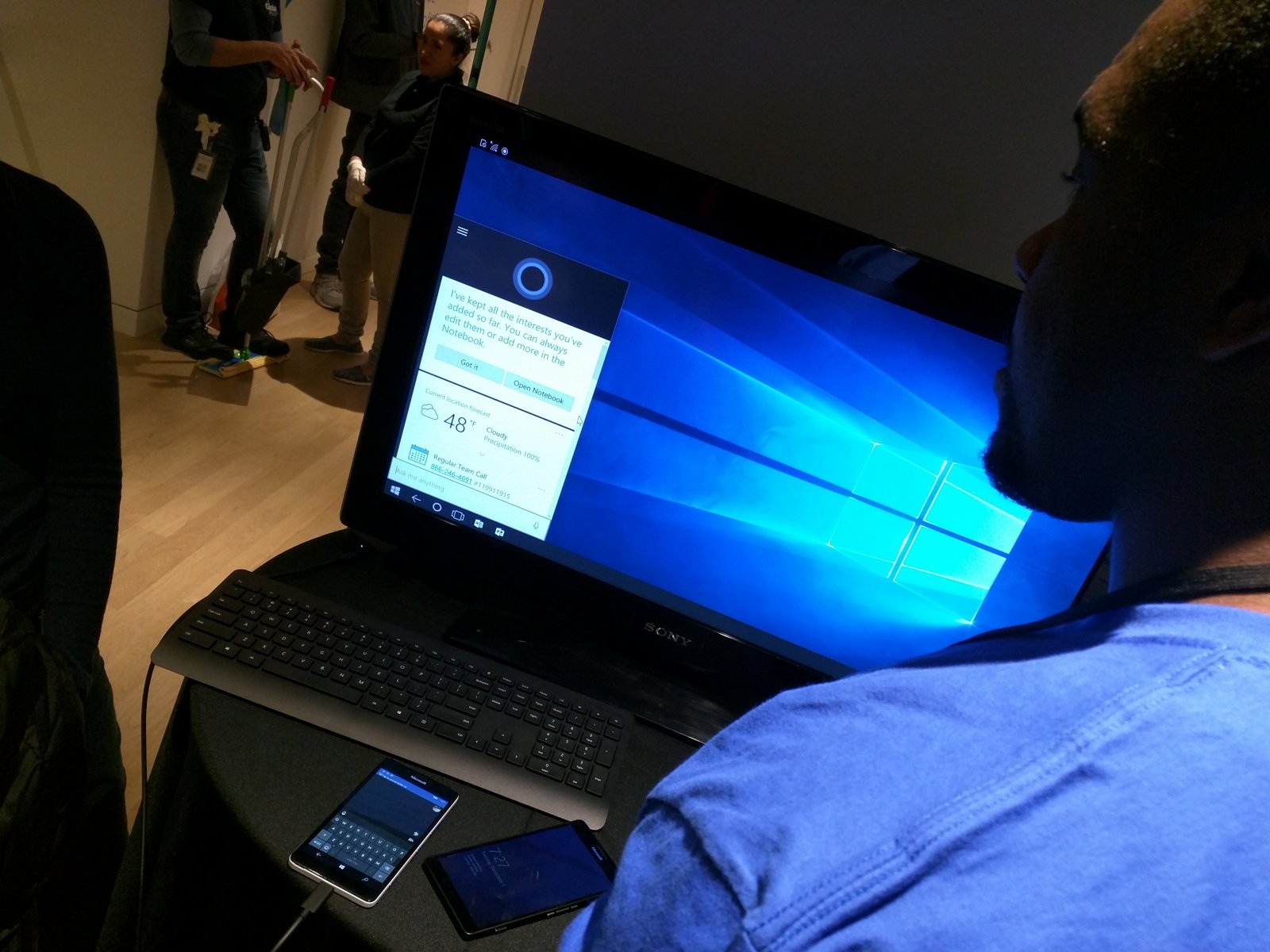
All the latest news, reviews, and guides for Windows and Xbox diehards.
You are now subscribed
Your newsletter sign-up was successful
Many industry watchers take issue with the lack of explicit dialogue about the progress of Windows on mobile phone. To grasp Microsoft's advances in mobile, however, it is imperative that we evaluate the entire Windows 10 and Microsoft ecosystem strategy of which mobile is a single component. Things have changed. Simply put, Windows is Windows. So as the entire duo user-focused ecosystem matures and develops so does its mobile component toward that same duo user end.
With Windows as a service Microsoft is developing Windows 10, for everyone, for every personal computing device everywhere.
- Part I: Hey, consumers, Microsoft is building a phone for you
- Part II: Hey, enterprise, Microsoft wants that consumer in you
Windows is everywhere
If you're one of the 7 billion people on planet Earth, there's a good chance you've used Windows in some form. Microsoft's globe-hopping OS is part of virtually everything we do both professionally and personally. If you have a PC in your home, there's a 90% chance it runs Windows. The same applies if you use a PC at work. Many ATMs and other embedded devices run Windows. The OS is the underlying system, often unseen to us, that helps make much of the computing world go around.
Large enterprises, small businesses, home offices, and students around the world personal and professional needs are driven by Windows. That said, there's a rumbling in paradise. The advent of smartphone-driven personal computing is chipping away at Redmond's position, and rivals are offering alternatives. Android apps on Chromebooks are an example.
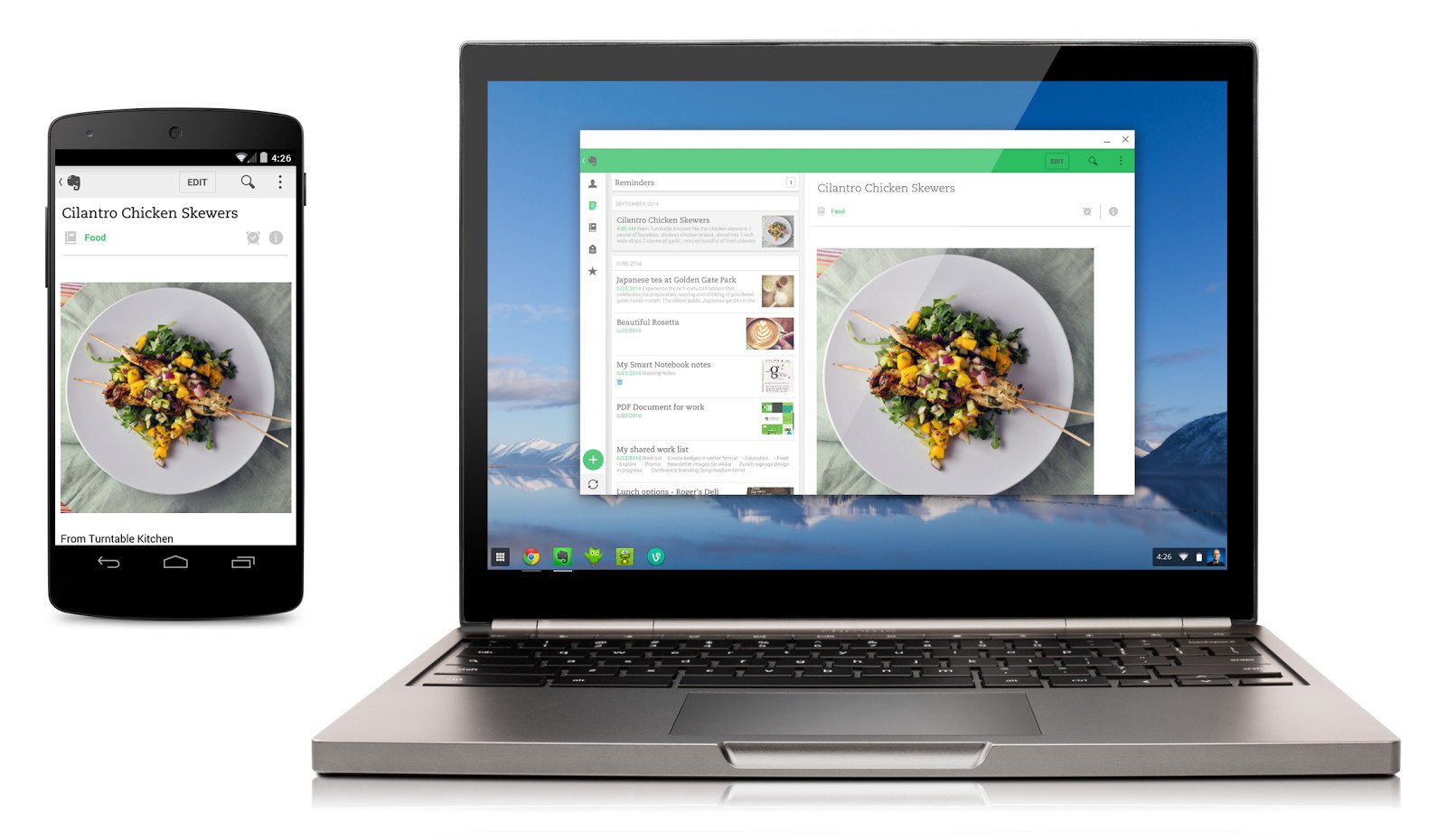
The ecosystems spawned by and constructed around popular mobile platforms like iOS and Android have their appeal to some users and industries. For example, many U.S. schools have chosen Google and Chromebooks, in spite of Microsoft's historical dominance of education. Moreover, the move of consumers' personal computing activity to smartphones has shifted developer's attention from the desktop to the small screen.
The UWP promises a true Windows everywhere experience.
As smartphones have become more powerful and taken on the [form and function of mini-tablets](http:// /smartphones-are-dead-part-i) their use in professional capacities, with developer support, has also increased. These shifts in the personal computing landscape have placed Microsoft and its Windows hegemony on the defensive in some areas. This challenge is no more clearly seen than on the mobile front.
Sadly, Microsoft's mobile efforts, have been a miss more often than a hit in recent years. The Universal Windows Platform, however, brings a unique duo user-focused approach to the field. It promises an authentic Windows everywhere experience from the development to the user experience level with a continuity of professional and personal digital experiences across devices and contexts.
All the latest news, reviews, and guides for Windows and Xbox diehards.
And if we look closely, beyond the status quo and an [app model that has been outgrown](http:// /untold-app-gap-story-part-iv-apps-bots), we may see the makings of a coming hit.
Soul of the machine
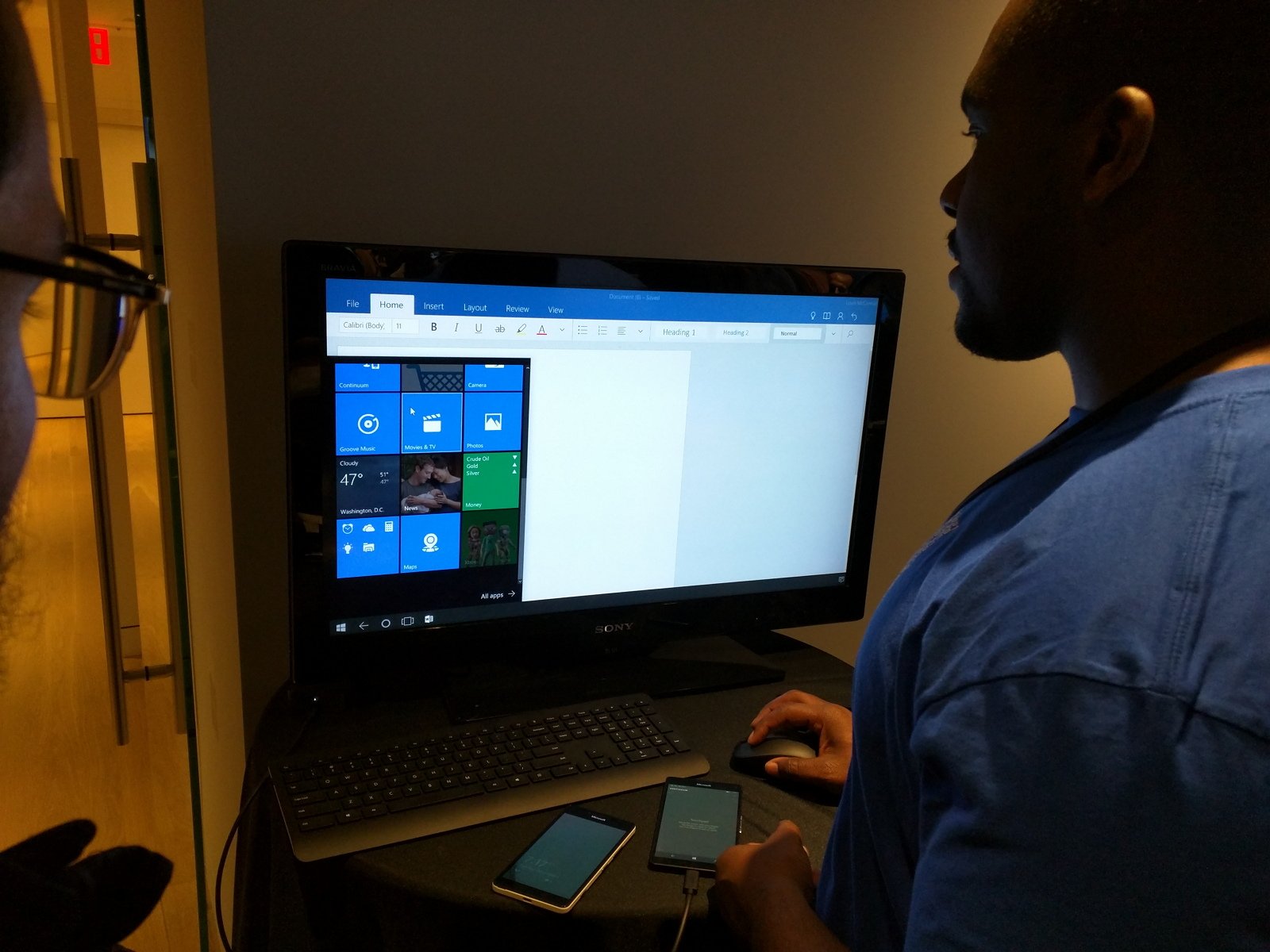
Microsoft's ambitious personal computing goals see the firm constructing an unprecedented cohesive and comprehensive A to Z personal computing environment. The entire Microsoft ecosystem — from the intelligent cloud to Cortana, the common core and store to shared experiences across devices and Continuum, and the next frontier of bots and AI — reveal the company's all-encompassing approach to personal computing and the duo user. However, like a spirit without a body, all of Microsoft's software efforts would fall short without hardware optimized for the evolving platform that is receiving so much attention.
Microsoft is building devices optimized for it's ecosystem.
Thus, to complete its duo user approach, Redmond is painstakingly aligning a range of Windows 10 hardware optimized for the software and services of this growing platform. HoloLens, Surface, and phone devices, for instance, are designed to showcase, among other things, the breadth of Windows 10 and universal apps as well as Windows Holographic, Continuum for PC and Continuum for phone respectively. Terry Myerson shared the importance of this software and hardware synergy this way in a recent communication on Microsoft's mobile strategy:
We remain steadfast in our pursuit of innovation across our Windows devices and our services to create new and delightful experiences. Our best work for customers comes from our device, platform, and service combination.
This synergy of device, platform and services is essential not only for first-party devices but partner devices as well. Microsoft's decades of success serving the duo user has always been tied to its depth and breadth of partnerships. OEM partners have always been an intimate part of Redmond's strategy for personal computing. This dependency on partners has not changed. In fact, Microsoft has strategically pulled first-party phone hardware from certain markets and the Lumia-saturated low-end. Microsoft is betting on OEMs embracing the company's duo user platform of software and services and implementing them on Microsoft-inspired phone hardware positioned to fill this void.
All in this together
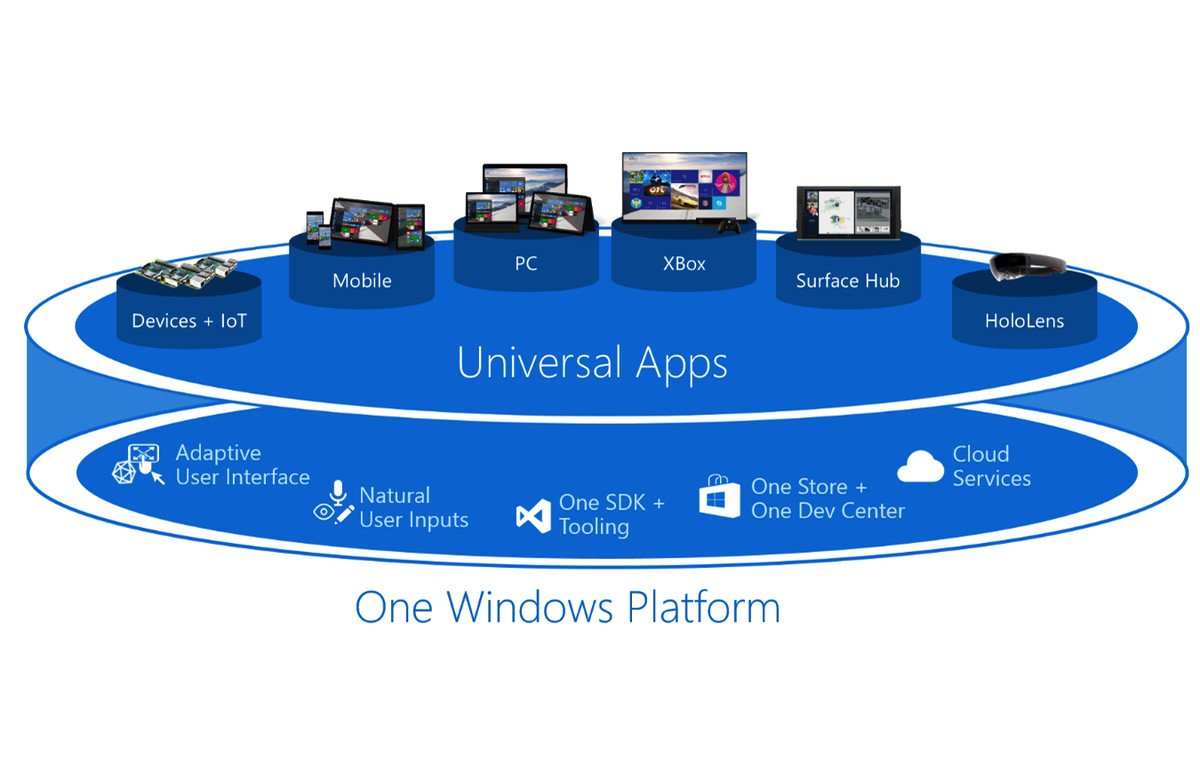
While we wait for this anticipated uptake in manufacturing partner support and a category-defining first-party phone, the Windows phone user base is taking a calculated hit. Windows phone enthusiasts have grown weary, and justifiably so, with Microsoft's slow trek back to the phone consumer as the company has once again reset itself and its near-term mobile ambitions. This time, however, they're not simply repositioning another mobile OS to rival competing mobile OSes. Microsoft is actually positioning the combined weight of an all-encompassing unified platform against the individual personal computing platforms of its rivals.
Microsoft isn't positioning just another mobile OS to compete with rivals.
Though still maturing, the goal of Windows 10 will see the continuity and unity of Windows 10 across form-factors bring the synergy of the ecosystem to each device the platform supports. With the Universal Windows Platform and one core across all platforms, Microsoft has achieved what no other company has.
The development of the platform that powers the range of Windows 10 devices must be viewed differently than one sees the development of a single mobile OS such as iOS or Android. This is also true of how we see how the company markets components of the platform. With the paradigm shift to a unified core, Microsoft's aggressive push of the platform carries with it the Windows 10 devices it supports. The platform, and all of the devices it supports is always evolving and moving forward together.
Different pace, same current
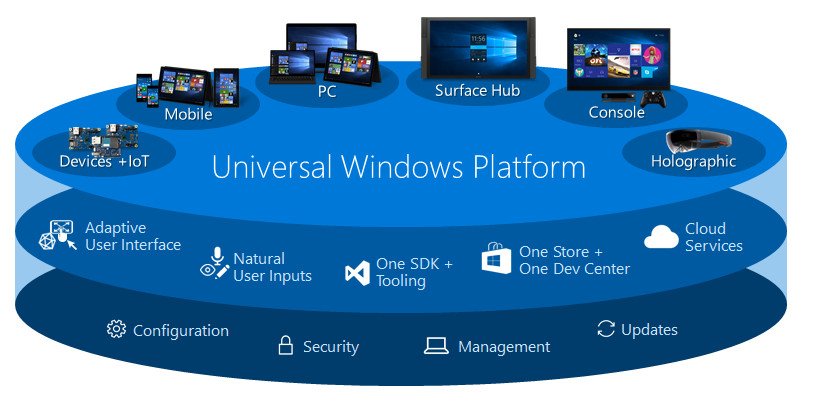
What often challenges our perception of this unprecedented unified ecosystem's evolution is that some devices and the OS on certain devices are at different stages in their development. This asynchronous development is compounded by the fact that certain devices and certain implementations of the OS are at varying positions in relation to their timelines regarding consumer and enterprise goals. This difference should not cloud our vision of the unified nature and goals of the platform, however. (Though admittedly there have been hiccups in the process.)
The Universal Platform and the devices it supports are moving forward together.
Despite the varying degrees of development of the components of the platform, the picture above gives an effective representation of the all-encompassing interconnected duo user ecosystem that Microsoft is developing. If Microsoft is successful with ultimately syncing the maturity of the OS across all devices and getting developers on board with making apps for all platforms, it will become clearer that Microsoft's mobile efforts do not rest in "Windows on phone" in the traditional sense.
In fact, it is clear that from the development to the user experience level, Windows 10's uniformity and synergy across devices potentially changes the game for each personal computing device upon which it is represented. Each Windows 10 device will benefit from the strengths of the others within the ecosystem.
Windows 10 is for personal computing beyond the desktop

Microsoft is going hard with Windows 10. Windows is already everywhere, But it's in so many more diverse forms — no longer are we talking about desktop PCs, but personal computers as holographic headsets like HoloLens, gaming consoles such as Xbox, 2-in-1 tablets like the Surface, smartphones and whatever the anticipated category-defining ultra-mobile PC the Surface Phone will be, are the new personal computers.
Windows has always been for everyone and for everything we do.
Windows has always been for everyone and for everything we do. In this current age of the mobility of experiences we are doing more personally and professionally on more types of devices. Microsoft is attempting to meet this challenge. The company's unified platform and supported category of devices is meant to ensure that Windows remains the OS for everyone, everywhere and for all that we do personally and professionally. However, the landscape is far more challenging than when desktop PCs ruled the space.
Microsoft recently revised a projection that the company would see one billion devices running Windows 10 by 2018. Redmond blamed the "focusing" of its hardware phone efforts for this shortfall. If Microsoft is to achieve its Windows everywhere goal Windows 10, the key to the UWP, must reach widespread adoption. At 350 million installs in less than a year, there's no denying that the numbers are impressive, even if not up to Microsoft's lofty expecations. But with the free upgrade coming to an end, the question is what will drive adoption of Windows 10 after the deadline. Windows 10 is, for most people, the primary direct portal into Microsoft's broader Windows ecosystem of devices and services.
Microsoft is positioning Windows for every personal computing environment.
Can Microsoft leverage its legacy and position its comprehensive Universal Windows Platform, category-defining Windows 10 devices and manufacturing partner relationships to win users to Windows? Time will tell. But that doesn't stop us from hashing it out? Sound off in comments and on Twitter and tell us what you think!

Jason L Ward is a Former Columnist at Windows Central. He provided a unique big picture analysis of the complex world of Microsoft. Jason takes the small clues and gives you an insightful big picture perspective through storytelling that you won't find *anywhere* else. Seriously, this dude thinks outside the box. Follow him on Twitter at @JLTechWord. He's doing the "write" thing!
